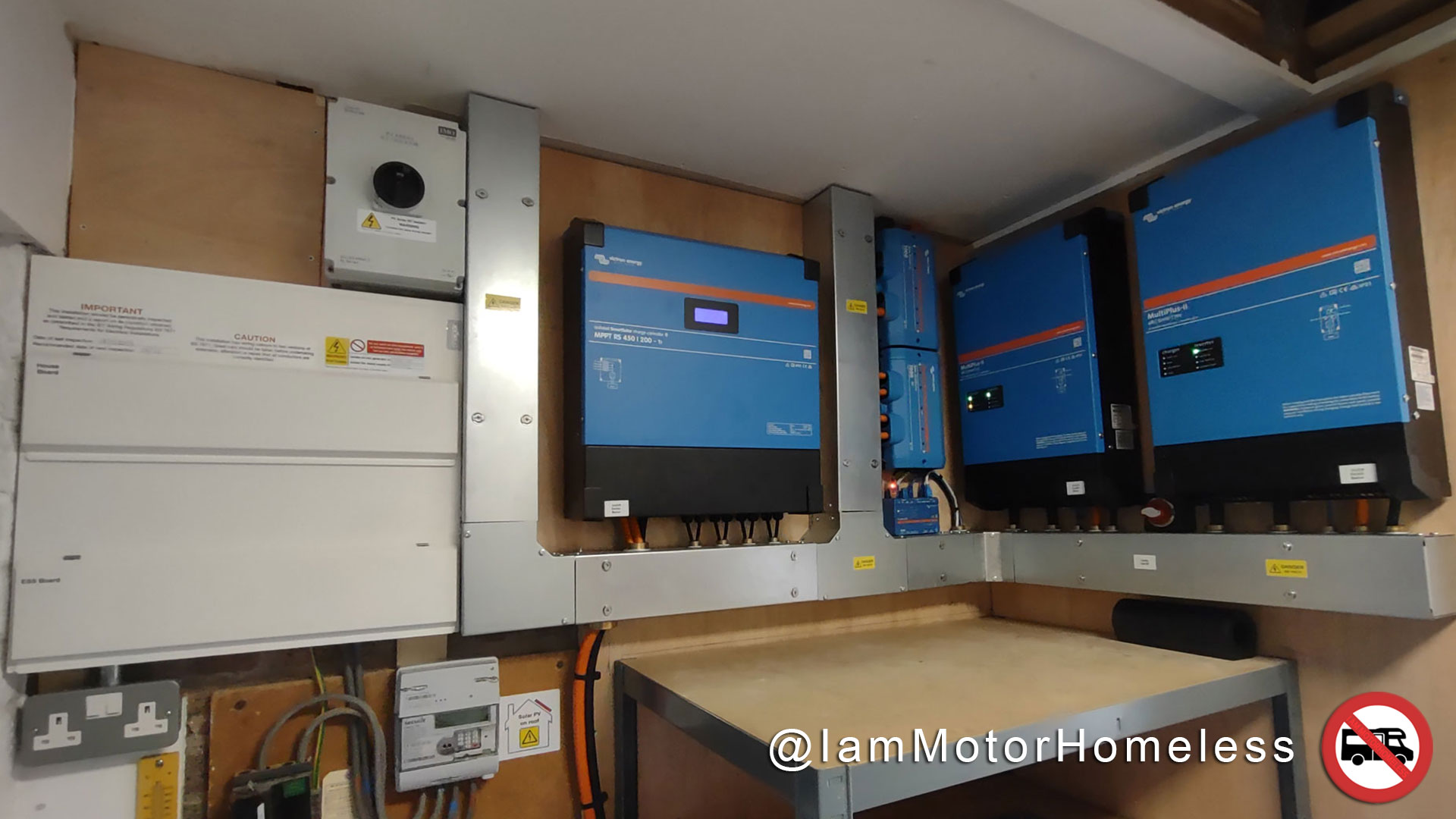Hi
I have had my pair of Multiplus II 48/5000 (240V) running in Parallel for a couple of weeks now, and they are working fine.
Like a lot of people, I am still a little confused about the potential uses of the AC-OUT 2 !
I keep coming back to this video "Victron AC OUT 2 programming for Hot Water Diversion"
https://youtu.be/tJGP3G0P7no?t=93
I'd like to run more than just a hot water heater.
The list of things that I'd like to run, once the main house batteries are full, is endless. everything from spaceheaters or fans, to charging a second auxiliary battery bank.
MY QUESTION
what's the best way to trigger this. should I just use Battery state of charge ?
on at 99% and off at 98%
or is there a way to trigger it on excess solar ?
if I am exporting more than 750 watt, then on, and off again if less than 750 watts
"and a feature request to Victron... being able to switch them independently, so I could have one load off the master and a second load off the slave would be nice :)"
thanks in advance

